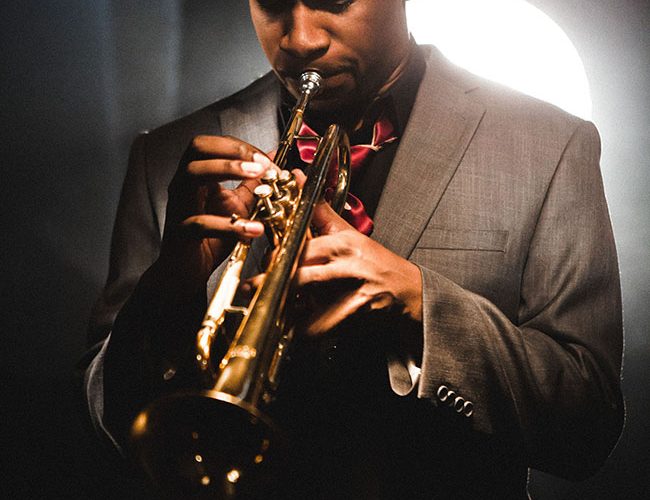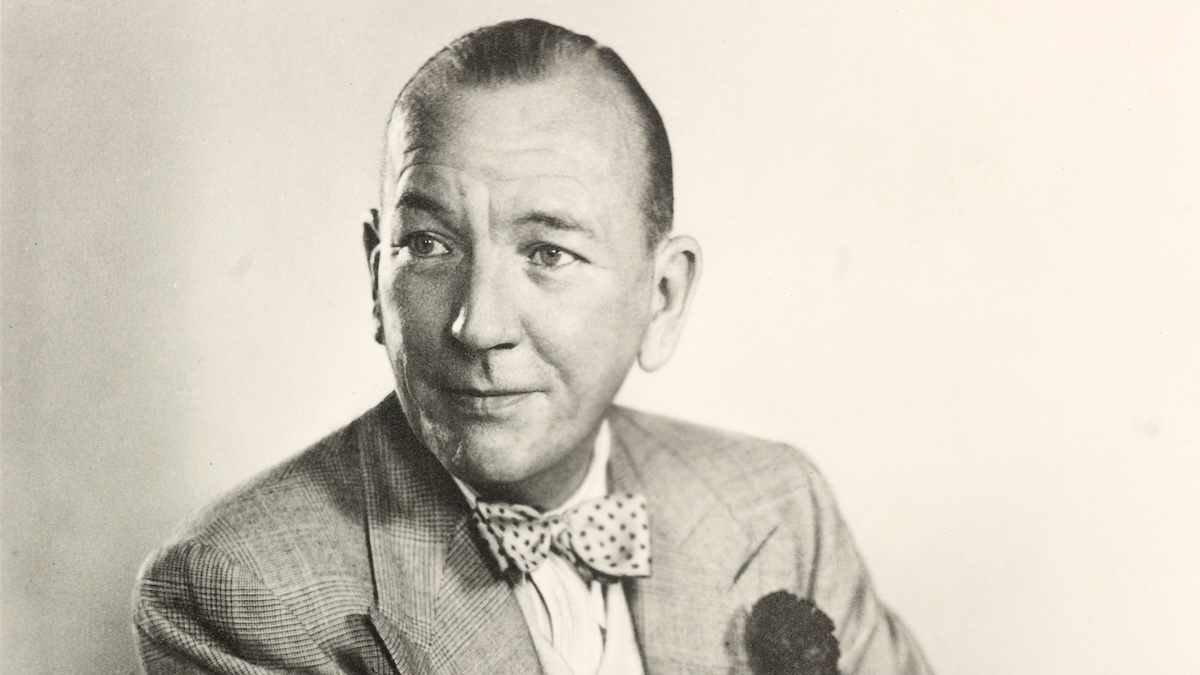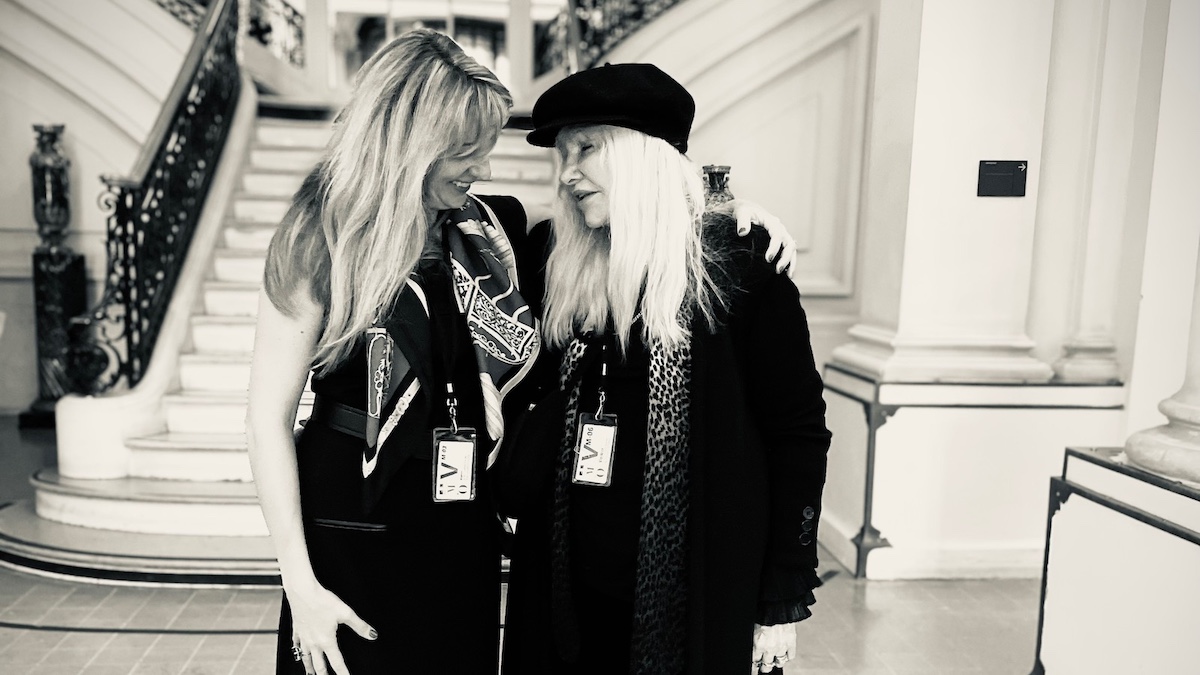
During rehearsals, dramaturg Jared Bellot (JB) caught up with renowned jazz musician Orbert Davis (OD), who composed and recorded the original music for Paradise Blue, to ask about his 30-year career, his approach to working on the play, and the power of jazz.
JB: What inspired you to pursue this career in music?
OD: When I was 11 years old, a local Veterans of Foreign Wars organization contacted me very early on Veterans Day to play “Taps” at a few local cemeteries. I was honored, though a bit shaken up with the 7-gun salutes! But an amazing thing happened when we were finished … they reached into their wallets and handed me 25 dollars! The concept of being able to “play and get paid” never ceases to amaze me.
JB: And now your career has spanned more than three decades, and you’ve enjoyed great critical and commercial success. How has your connection to the music and your conversation with the world around you evolved?
OD: I don’t think that my connection to music has changed much. I’m still a “music addict.” But it has intensified through the years. I guess that age, knowledge, and experience are the best teachers.
I remain in conversation with the world simply by living life to the fullest. My work keeps me busy and highly motivated, but I get to turn the volume down occasionally. Life with my family keeps me balanced. And talk about “conversation”—I love traveling to other countries, meeting and sharing music with other musicians. Though we may speak different languages, we understand each other perfectly through the language of music.
JB: When you sit down to write a piece of music, how would you describe your process?
OD: My process is all about making connections, whether historical, visual, or aesthetic. I want my music to serve as “soundtracks” for whatever assignment I’m given.
JB: Much of Dominique Morisseau’s writing is about inheritance—what is passed down to us (for better or worse) from the generations that have come before. Does this sense of legacy and ancestry also live in your music?
OD: There is no way my music cannot contain a sense of legacy and ancestry, whether from my own experiences or inspired by external factors. As I said earlier, my process is all about making connections. The connection I know best lies within my own DNA: my heritage, faith, beliefs, struggles, and successes that live within my bloodline. And for me, that’s a fascinating place of reference. When I experience the legacy of others through direct contact or intensive study, music begins to elevate to an even higher level. That’s what I believe happens through collaboration, or even within jazz performance.
JB: Just last year you received a commission from the Chicago Jazz Festival to write a piece that would be part of the city’s ongoing centennial celebration of The Great Migration. You created “Soul Migration”—what is its significance?
OD: The significance behind “Soul Migration” was personal. It celebrates the 100th anniversary of the migration of African Americans from the South to the North, specifically to Chicago. My parents came to Chicago from northern Louisiana during the early 1950s, toward the end of The Great Migration. I remember their stories about Chicago being the “land of opportunity.” Specific inspiration came from Natalie Moore’s book The South Side, and Timuel Black’s epic two-volume Bridges of Memory.
I was motivated to write a seven-movement work that would depict more than the geographical movement of a people. I wanted it to be a celebration of the consciousness of the people … the collection of “souls” that built strong communities. The stories of “Soul Migration” reflect the Chicago African American experience, but are universally humanistic sagas of survival, strength, and heritage.
JB: After a project like that, what was your response when Ron OJ Parson approached you about working on this production?
OD: When Ron called me to compose for Paradise Blue, I immediately responded with excitement that this would be another experience in the chapter of our friendship. We’ve known each other for a while and have both appreciated and admired each other’s work. As he described Paradise Blue, I started brainstorming on different processes that we could use to collectively transcend our individual art.
JB: So what was that process like, writing the music for this production?
OD: Preparing for Paradise Blue was quite a treat. When Ron told me that the setting was 1949, I immediately knew what I had to do. I studied the music from 1946 to ’48 to discover what the character Blue would’ve listened to and who would’ve been his inspiration. Since Bebop was in its infancy, Dizzy Gillespie would have been the obvious choice. However, given Blue’s character and personality, I gravitated toward Fats Navarro. So the music of Paradise Blue was inspired by the creative improvisation of Fats and the compositional style of Tadd Dameron. My goal was to compose music as if I were writing for “Blue’s new album.” I want the audience to leave the theater thinking, “I’ve heard that tune before.” If they do that, I will have done my job.
JB: One of the things I’ve come to love about Dominique’s writing is the musicality of her prose—her words ebb and flow so fluidly, and I think you can see her origins as a poet. How did Dominique’s language influence your own writing process?
OD: I could tell that the creative process of jazz inspiration inspired Dominique. Her lines flow with emotion as finely crafted improvised solos. The musicians’ interaction is spot on … except the Orbert Davis Quintet would never fight like Blue’s group does!
JB: In an interview you did with Jazz Inside New York, I read your comment that “Improvisation is life. In it we find many skills found in life itself.” Certainly the spirit of improvisation has been incredibly important in this rehearsal process and is a vital part of the story. How did that spirit translate to the music?
OD: When I teach improvisation, I often ask students, “how many of you use a map every time you drive?” Or, “who uses a manual to ensure that your morning routine is exactly the same every day?” Or, “… do you use a script for casual conversations?” Answers are usually “no.” Such can be the same for music. Paradise Blue is set in jazz. The music must reflect the time period and the musical process. However, once the music is documented, it becomes scripted, unless the actors are improvising musicians.
JB: So when you refer to “improvisation as composition,” what does that mean?
OD: Improvisati
on is spontaneous composition. It is a process based on the theory and aesthetics of written composition, but occurs in the moment.
JB: In a recent article in the Chicago Tribune, you quoted jazz clarinetist Pete Fountain, commenting that art can lead to healing and “that music forces us to listen and to feel, before we turn our minds away from what’s going on, before we ignore what’s right in front of us. The music holds us long enough to think and to feel.” What is it about jazz specifically that allows for this cathartic experience?
OD: Wow, I didn’t know that I was quoting Pete! But the ideal is universal, and boy does our nation need jazz right now! The very fact that jazz is spontaneous means that the listener participates in a process that has unexpected consequences. When I attend a classical music performance, I know what’s going to happen, based on experience and knowledge of the music. Jazz offers the listener a ride with the musician on a “risky” journey!
JB: How do we pass on that same experience to the next generation?
OD: The power of jazz never dies, as long as the performers have a high level of integrity and honesty. The improvised jazz performance is the perfect model for democracy and communication. These are qualities that must be presented to young people, as well as the rich history of jazz, which presents itself as the soundtrack for American and world history.
JB: What projects are coming up next for you?
OD: I’m actually working on multiple projects at the present time: a score for a fascinating movie called Animator; new compositions and arrangements for upcoming Chicago Jazz Philharmonic performances; producing two new CD projects and a documentary that will tell the story of our ongoing relationship with Cuba. Of course, I must mention the daily projects of being husband and dad!
This article was reprinted from TimeLine Theatre Company.

Noël Coward’s Travels

Kate Chopin in New Orleans: Mother-Daughter Author Duo Collaborate on Historical Book

